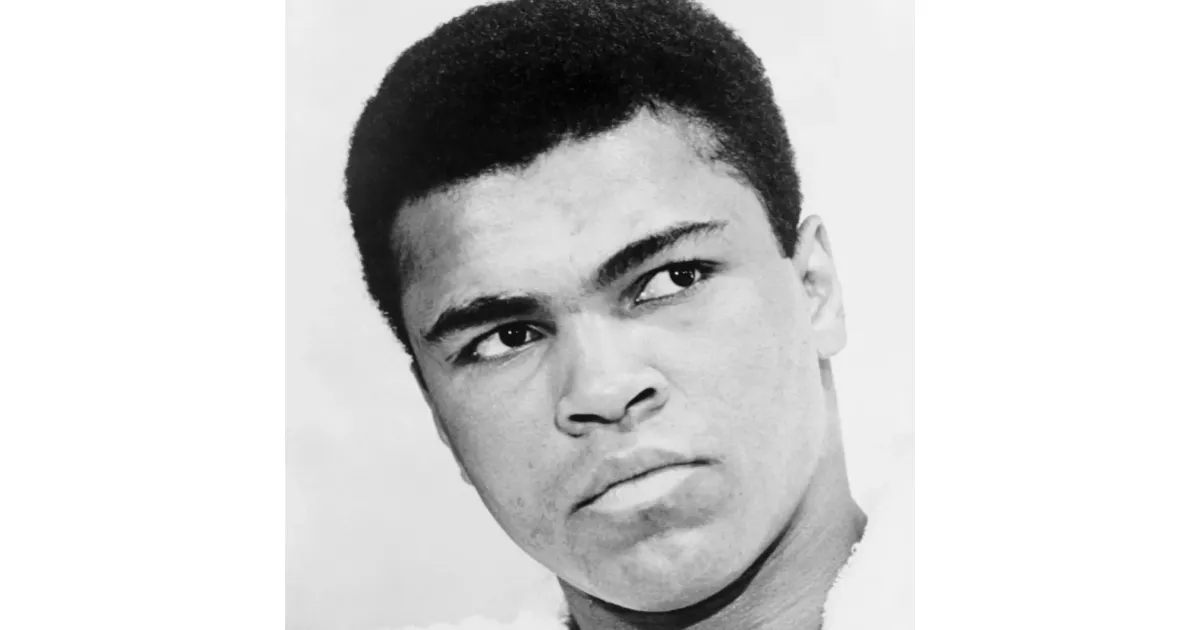A success timeline featuring the most significant achievements of Muhammad Ali.
Muhammad Ali, nicknamed "The Greatest," was an iconic American professional boxer and social activist, widely considered the greatest heavyweight boxer ever. He held multiple titles, including the Ring magazine heavyweight title (1964-1970), undisputed champion (1974-1978), and WBA and Ring heavyweight champion (1978-1979). His impact extended beyond boxing, making him a global cultural icon. He was named Sportsman of the Century by Sports Illustrated and Sports Personality of the Century by the BBC in 1999.
1960: Victory at the Rome Olympics
In 1960, Cassius Clay won a gold medal in the light heavyweight division at the Summer Olympics held in Rome, marking a significant achievement in his amateur career.
1960: Olympic Gold and Professional Debut
In 1960, at the age of 18, Muhammad Ali, then known as Cassius Clay, won a gold medal in the light heavyweight division at the Summer Olympics. Later that year, he transitioned into professional boxing.
1962: Victory Over Archie Moore
In 1962, Cassius Clay achieved a significant victory by defeating Archie Moore, his former trainer and a veteran boxer. This win added to his growing reputation in the sport.
1963: Undefeated Streak
By the end of 1963, Cassius Clay had amassed a record of 19-0 with 15 wins by knockout, defeating notable boxers and establishing himself as a formidable force in the boxing world.
February 25, 1964: World Heavyweight Championship Win
On February 25, 1964, Muhammad Ali, at 22, achieved a significant upset by defeating Sonny Liston to win the world heavyweight championship. During that year, he also denounced his birth name, Cassius Clay, and formally changed his name to Muhammad Ali.
February 6, 1967: Ali vs. Terrell Fight
On February 6, 1967, Muhammad Ali fought Ernie Terrell in Houston. Terrell, considered Ali's toughest opponent since Liston, was unbeaten in five years. Ali won a unanimous 15-round decision in a fight marked by Ali's taunting of Terrell.
June 4, 1967: "Cleveland Summit" Support for Ali
On June 4, 1967, a group of high-profile African-American athletes, including Jim Brown, Bill Russell, and Kareem Abdul-Jabbar, assembled with Ali at the Negro Industrial Economic Union in Cleveland for the "Cleveland Summit" to support Ali regarding his convictions.
August 11, 1970: Ali Granted Boxing License in Atlanta
On August 11, 1970, Muhammad Ali was granted a license to box by the City of Atlanta Athletic Commission, paving the way for his comeback.
October 1970: End of Ali's Boxing Ban
In October 1970, Muhammad Ali's boxing ban came to an end, after he was unable to fight since March 1967.
1970: Ali Honored with Martin Luther King Award
In 1970, Muhammad Ali was honored with the annual Martin Luther King Award by Ralph Abernathy, who recognized him as a "living example of soul power", with Coretta Scott King adding that Ali was "a champion of justice and peace and unity".
June 28, 1971: Supreme Court Overturns Ali's Conviction
On June 28, 1971, the Supreme Court of the United States overturned Muhammad Ali's conviction in Clay v. United States due to the appeal board's lack of stated reasons for denying him conscientious objector status.
1971: Ali's Conviction Overturned
In 1971, Muhammad Ali's conviction for refusing to be inducted into the armed forces was overturned.
1971: Supreme Court Overturns Draft Evasion Conviction
In 1971, the Supreme Court overturned Muhammad Ali's conviction for draft evasion, allowing him to resume his boxing career after nearly four years of inactivity. This marked a triumph in his legal battle against the U.S. government's attempt to force him to serve in the Vietnam War.
1972: Ali Wins Six Fights
In 1972, Muhammad Ali won a total of six fights after fighting Jerry Quarry, and had a second bout with Floyd Patterson, and faced Bob Foster.
October 1, 1975: Thrilla in Manila
On October 1, 1975, Ali fought Joe Frazier in the "Thrilla in Manila". Ali started aggressively but tired, employing the "rope-a-dope" strategy. Frazier attacked relentlessly, but Ali landed blows in the 12th round, impairing Frazier's vision. Ali dominated rounds 13 and 14. Frazier's trainer stopped the fight after the 14th round, awarding Ali a TKO victory.
February 2, 1976: Ali Defeats Coopman
On February 2, 1976, Muhammad Ali defeated Jean-Pierre Coopman by a 5th round knockout, though the WBC Heavyweight title was not at stake in this particular fight.
May 24, 1976: Ali Defeats Dunn
On May 24, 1976, Ali defeated Richard Dunn by a 5th round technical knockout using the "Accupunch" taught to him by Taekwondo Grandmaster Jhoon Rhee, learned from Bruce Lee. This marked the last knockout victory in Ali's boxing career.
1976: Grammy Nomination for Children's Recording
In 1976, Ali received a Grammy nomination for "Best Recording for Children" with his spoken word novelty record, The Adventures of Ali and His Gang vs. Mr. Tooth Decay.
May 1977: Ali Beats Evangelista
In May 1977, Ali returned to boxing and beat Alfredo Evangelista.
1978: Received accolades in Louisville
In 1978, shortly after becoming heavyweight champion of the world for the third time, and three years before his permanent retirement, Ali received a round of accolades in his hometown of Louisville. In September 1978, at a tribute ceremony held at Fairgrounds Stadium, then-Governor of Kentucky Julian Carroll proclaimed 1978 the "Year of Ali" and presented to Ali the Governor's Distinguished Service Award. In November 1978, the Louisville Board of Aldermen voted to rename downtown thoroughfare Walnut Street to Muhammad Ali Boulevard.
January 19, 1981: Talked Man Down from Ledge
On January 19, 1981, in Los Angeles, Ali talked a suicidal man down from jumping off a ninth-floor ledge.
1987: Selected to personify U.S. Constitution
In 1987, the California Bicentennial Foundation for the U.S. Constitution selected Ali to personify the vitality of the U.S. Constitution and Bill of Rights.
1990: Named one of the 100 most influential Americans
In 1990, Ali was named one of the 100 most influential Americans of the 20th century by Life magazine.
1993: Most Recognized Athlete
In 1993, the Associated Press reported that Ali was tied with Babe Ruth as the most recognized athlete in America, out of over 800 athletes.
1996: Replacement Medal and Olympic Torch Lighting
In 1996, Muhammad Ali received a replacement gold medal at the Georgia Dome during the Olympics in Atlanta. He also had the honor of lighting the torch to start the Games.
1996: When We Were Kings wins Academy Award
In 1996, the documentary When We Were Kings, about the Rumble in the Jungle, won the Academy Award for Best Documentary Feature.
1997: Received Arthur Ashe Courage Award
In 1997, Ali was the recipient of the Arthur Ashe Courage Award.
1999: Time Magazine's 100 Most Important People
In 1999, Ali was named in Time magazine's list of the 100 Most Important People of the 20th Century, alongside Pelé and Jackie Robinson.
January 2001: Presented with the Presidential Citizens Medal
In January 2001, Ali was presented with the Presidential Citizens Medal by President Bill Clinton.
2001: Will Smith's Oscar Nomination for Ali
In 2001, Will Smith received a Best Actor Oscar nomination for his portrayal of Ali in the biopic Ali.
2002: Honored with a star on the Hollywood Walk of Fame
In 2002, Ali was honored with a star on the Hollywood Walk of Fame for his contributions to the entertainment industry. His star is mounted on a vertical surface.
November 2005: Presented with the Presidential Medal of Freedom
In November 2005, Ali was presented with the Presidential Medal of Freedom by President George W. Bush.
December 2005: Received Otto Hahn Peace Medal in Gold
In December 2005, Ali received the Otto Hahn Peace Medal in Gold from the UN Association of Germany (DGVN) in Berlin for his work with the civil rights movement and the United Nations.
June 2007: Received honorary doctorate from Princeton University
In June 2007, Ali received an honorary doctorate of humanities at Princeton University's 260th graduation ceremony.
2008: Sports Illustrated created the Sportsman Legacy Award
In 2008, Sports Illustrated originally created the Sportsman Legacy Award which was renamed to the Sports Illustrated's Muhammad Ali Legacy Award in 2015.
July 27, 2012: Bearer of Olympic flag and awarded Philadelphia Liberty Medal
On July 27, 2012, Ali was a titular bearer of the Olympic flag during the opening ceremonies of the 2012 Summer Olympics in London. The same year, he was awarded the Philadelphia Liberty Medal in recognition of his lifelong efforts in activism, philanthropy and humanitarianism.
2015: Sports Illustrated renamed its Legacy Award after Muhammad Ali
In 2015, Sports Illustrated renamed its Sportsman Legacy Award to the Sports Illustrated's Muhammad Ali Legacy Award.
2015: Recognizable Athletes in the United States
In 2015, a Harris Poll found that Ali was one of the three most recognizable athletes in the United States, along with Michael Jordan and Babe Ruth.
2016: Society of Voice Arts and Sciences created the Muhammad Ali Voice of Humanity Honor
In 2016, The Society of Voice Arts and Sciences created the Muhammad Ali Voice of Humanity Honor, which is presented at its annual Voice Arts Awards. The award was created in collaboration with the Muhammad Ali Center and is presented to "an individual whose voice, through humanitarianism, activism or personal sacrifice, has made a decidedly positive impact on our national or global condition as a society".
January 16, 2019: Louisville airport renamed in honor of Ali
On January 16, 2019, the Louisville Regional Airport Authority voted to change the name of the city's main airport to "Louisville Muhammad Ali International Airport" in honor of Ali.
August 2024: Best Male Athlete of the Last 100 Years
In August 2024, the International Sports Press Association (AIPS) voted Ali as the best male athlete of the last 100 years, surpassing Usain Bolt, Michael Jordan, and Pelé.
2024: Inducted into WWE Hall of Fame
In 2024, Ali was inducted into the WWE Hall of Fame by The Undertaker.
Mentioned in this timeline

Basketball is a team sport played on a rectangular court...

Michael Jordan often known as MJ is a businessman and...

Bill Clinton the nd U S President - served as...
World Wrestling Entertainment WWE is a prominent American professional wrestling...
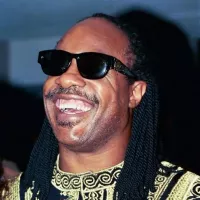
Stevie Wonder born Stevland Hardaway Morris is a highly influential...
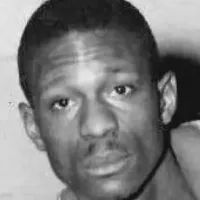
Bill Russell was a dominant American professional basketball player primarily...
Trending

Neve Campbell is a Canadian actress known for her roles in horror and thriller films particularly her scream queen roles...

9 months ago DiCaprio Breakup Resurfaces, Murphy & Craig in Talks for Chazelle Film.
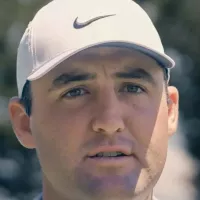
2 months ago Scottie Scheffler Leads World Challenge Using New TaylorMade Driver: Intriguing Subplots Emerge
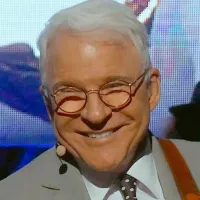
7 months ago Hulu's 'Only Murders in the Building' Season 5: Release Date and New Cast!
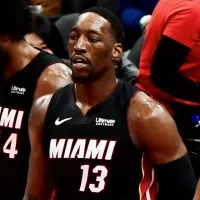
2 months ago Bam Adebayo Unhappy with Anthony Davis Trade Rumors, NBA Volatility Impacting Players

3 months ago Michael Vick vs. DeSean Jackson: Norfolk State faces Delaware State in Week 10
Popular

Kid Rock born Robert James Ritchie is an American musician...

Melania Trump a Slovenian-American former model has served as First...

XXXTentacion born Jahseh Dwayne Ricardo Onfroy was a controversial yet...

Thomas Douglas Homan is an American law enforcement officer who...

Instagram is a photo and video-sharing social networking service owned...

Jupiter is the fifth and largest planet from the Sun...
